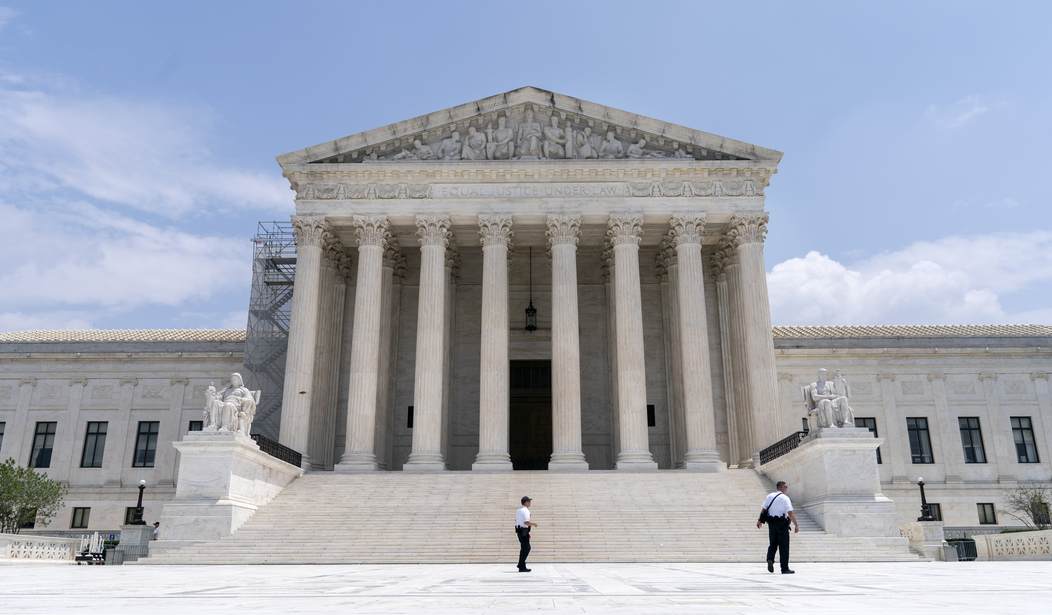Top News
Supreme Court Agrees to Hear Arguments Over Trump’s Appearance on Colorado Ballots

Earlier this week former president Trump’s lawyers appealed to the Supreme Court to get him back on the ballot in Colorado. Here’s a bit of what they said in their filing:
It is a “‘fundamental principle of our representative democracy,’ embodied in the Constitution, that ‘the people should choose whom they please to govern them.’ ” U.S. Term Limits, Inc. v. Thornton, 514 U.S. 779, 783 (1995) (quoting Powell v. McCormack, 395 U.S. 486, 547 (1969)). Petitioner President Donald J. Trump (“President Trump”) is the leading candidate for the Republican Party nomination for President of the United States.1 Over 74 million Americans voted for President Trump in the 2020 general election, including more than 1.3 million voters in the State of Colorado.2 Yet, on December 19, 2023, the Colorado Supreme Court ordered President Trump removed from the presidential primary ballot—a ruling that, if allowed to stand, will mark the first time in the history of the United States that the judiciary has prevented voters from casting ballots for the leading major-party presidential candidate.
Today, the Supreme Court agreed to take up the case.
The U.S. Supreme Court is set to hear arguments on whether former President Trump will be on the Colorado Republican presidential primary ballot.
The justices said they will hear the case on an expedited basis, with arguments on Feb. 8.
“The petition for a writ of certiorari is granted. The case is set for oral argument on Thursday, February 8, 2024,” the decision said. “Petitioner’s brief on the merits, and any amicus curiae briefs in support or in support of neither party, are to be filed on or before Thursday, January 18, 2024.”
We’ve been through the backstory before but a lower court in Colorado ruled that Trump could be considered an insurrectionist but could not be taken off the ballot because section 3 of the 14th Amendment did not apply to the president. That ruling was appealed and the Colorado Supreme Court overturned the part of the decision regarding the 14th Amendment, meaning Trump could be banned from the ballot.
“President Trump asks us to hold,” the majority wrote in an unsigned opinion, “that Section 3 disqualifies every oath-breaking insurrectionist except the most powerful one and that it bars oath breakers from virtually every office, both state and federal, except the highest one in the land. Both results are inconsistent with the plain language and history of Section 3.”
The state Supreme Court addressed several other issues. Congress does not need to act before courts may disqualify candidates, it said. Mr. Trump’s eligibility is not the sort of political question that is outside the competence of courts. The House’s Jan. 6 report was properly admitted into evidence. Mr. Trump’s speech that day was not protected by the First Amendment.
The problem with this argument, as even the Washington Post editorial board agreed, is that Trump has never been charged much less convicted of insurrection.
…what’s missing from the majority’s analysis is due process of law. Not only has Mr. Trump not been convicted of insurrection either by a jury of his peers or from the bench by a judge; he hasn’t even been charged with it. Tellingly, Justice Department special counsel Jack Smith has brought an aggressive case against the former president for conspiracy to defraud the United States, obstruction of an official proceeding and more — but not for violating the federal law against insurrection. The penalties for that, by the way, include disqualification from “any office under the United States.”…
Disqualifying a candidate based on an accusation, albeit one blessed by a state court judge as in the Colorado case — but not an actual conviction — is dangerous. What’s to stop a Republican politician from seeking to bar his Democratic opponent because the opponent attended Black Lives Matter protests, claiming that those protests, some of them nominally in service of abolishing the police, qualify as insurrection?
This isn’t a minor objection. Trials are how we determine guilt in this country. Trump is currently facing dozens of charges in several ongoing trials to determine his guilt for a number of things. He may well be convicted on some of those counts. But as the Post points out, insurrection is not one of them. Jack Smith hasn’t brought that case and until he does and until Trump is convicted of it he should remain on the ballot. Hopefully that’s the conclusion the Supreme Court will reach in a 9-0 decision.
Read the full article here


















